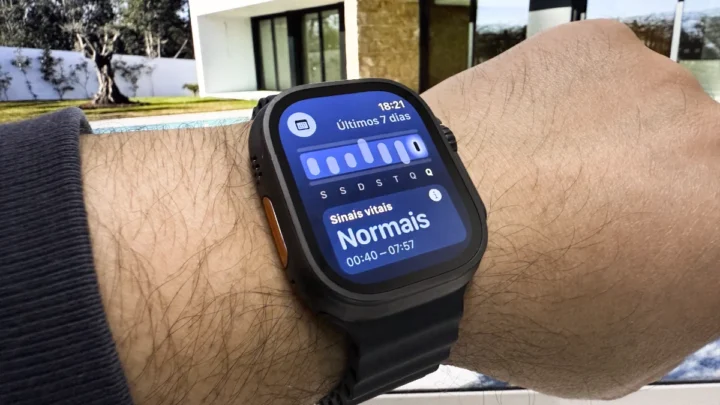We have shown here at Pplware how the wearables segment is currently experiencing several exciting advances. At CES 2025, a company presented a detection kit for real-time monitoring of blood pressure based on ultrasound. Blood glucose detection is already in development, and researchers are also explore how sleep data can be used in the context of chronic problems for more effective health analysis.
The Apple Watch, and other "wearable" devices have opened Pandora's box. With the powerful technology that brands currently have, it is possible to develop devices that can function as a personal doctor, a kind of health center that we use all the time.
An example of this development was shown in a recent investigation by experts at Mount Sinai. The results reveal that the data collected by wearables like the Apple Watch Series 10 and Oura Ring 4 can be used to predict the worsening of chronic problems and even identify the deterioration of related symptoms.
As part of the study, the team focused on Inflammatory Bowel Disease (IBD), a chronic condition that causes inflammation in the gastrointestinal tract.
According to the Centers for Disease Control and Prevention (CDC), this condition affects millions of people around the world and occurs when the immune system attacks healthy cells in the intestine. It is characterized by episodes of remission, during which symptoms such as diarrhea, fatigue, pain, ulcers and rectal bleeding affect patients.

Informative biomarkers
In the research, published in a Gastroenterology journal, wearable devices sold by brands such as Apple, Fitbit and Oura proved to be “effective tools for monitoring chronic inflammatory diseases such as IBD”.
Specifically, the team monitored biomarkers such as heart rate variability, oxygen levels, daily activity and heart rate in more than 300 participants from 36 states.
Participants also reported their symptoms daily, as well as providing blood and stool samples for analysis.
The team found that the aforementioned biomarkers were affected when participants experienced symptoms of inflammation associated with ulcerative colitis or Crohn's disease, the two most common forms of IBD. Notably, biomarkers measured by wearable devices also changed in the absence of visible symptoms, changing up to seven weeks before symptoms appeared.
These physiological markers were able to detect inflammation even in the absence of symptoms and distinguish whether symptoms were caused by active inflammation in the intestines.
Explained the statement from Mount Sinai Hospital and Mount Sinai School of Medicine.
Algorithm adjustment for wearables
The team is now working on fine-tuning the algorithms so that smart watches and rings can detect signs and predict the worsening of other related health problems, such as rheumatoid arthritis.
These discoveries open the door to exploring innovative ways to use wearable technology for health monitoring and disease management in ways we have not considered until now.
Said Dr. Robert Hirten, Associate Professor of Medicine (Gastroenterology) and Artificial Intelligence and Human Health at the Icahn School of Medicine, Mount Sinai.
This is not the first study of its kind. Another article, published in the journal Expert Review of Medical Devices in 2024, postulated that, in addition to predicting flare-ups and monitoring IBD symptoms, wearables can also be used for early disease detection and assessment of gut health.
In 2023, the California Institute of Technology detailed a wearable skin sensor, worn as a small patch, that can detect the presence of C-reactive protein in human sweat. Produced by the liver, C-reactive protein is a known indicator of inflammation in the body.
This study showed the enormous potential of wearables to maintain health and predict illnesses. Additionally, Oura has added a feature called Symptom Radar to the Oura Ring app, which helps identify the onset of respiratory illnesses.
Source: pplware.sapo.pt


